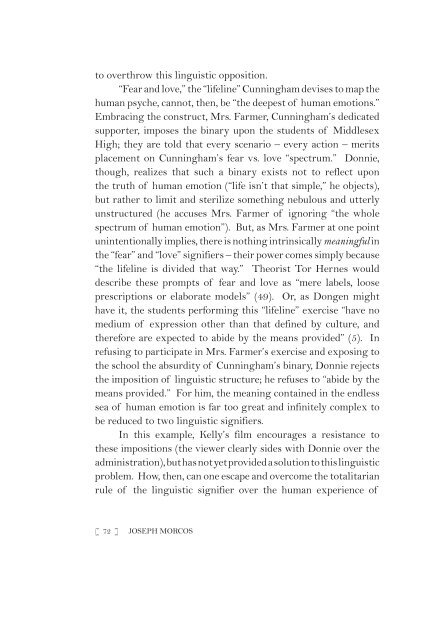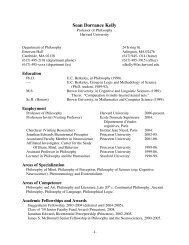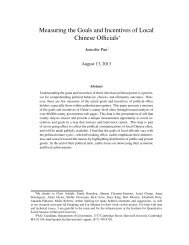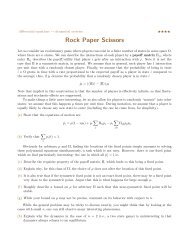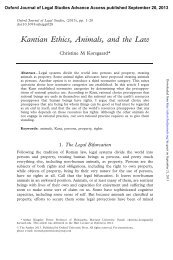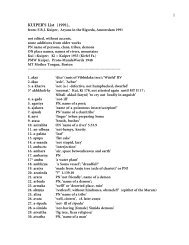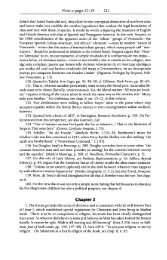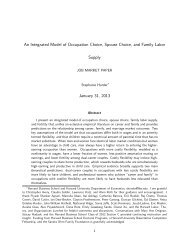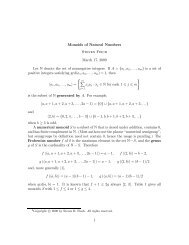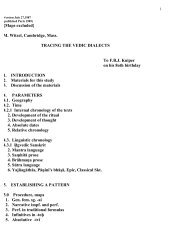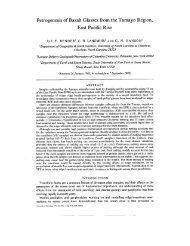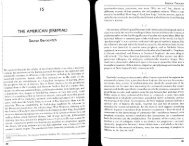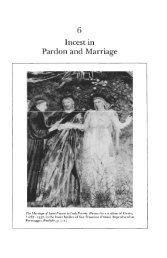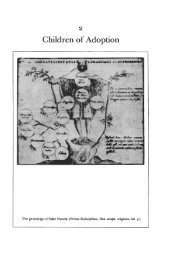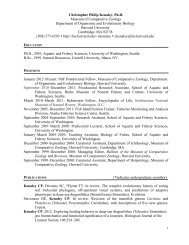Un-Characterizing Madness The Semiotic Revolution of Donnie Darko
Un-Characterizing Madness The Semiotic Revolution of Donnie Darko
Un-Characterizing Madness The Semiotic Revolution of Donnie Darko
Create successful ePaper yourself
Turn your PDF publications into a flip-book with our unique Google optimized e-Paper software.
to overthrow this linguistic opposition.<br />
“Fear and love,” the “lifeline” Cunningham devises to map the<br />
human psyche, cannot, then, be “the deepest <strong>of</strong> human emotions.”<br />
Embracing the construct, Mrs. Farmer, Cunningham’s dedicated<br />
supporter, imposes the binary upon the students <strong>of</strong> Middlesex<br />
High; they are told that every scenario – every action – merits<br />
placement on Cunningham’s fear vs. love “spectrum.” <strong>Donnie</strong>,<br />
though, realizes that such a binary exists not to reflect upon<br />
the truth <strong>of</strong> human emotion (“life isn’t that simple,” he objects),<br />
but rather to limit and sterilize something nebulous and utterly<br />
unstructured (he accuses Mrs. Farmer <strong>of</strong> ignoring “the whole<br />
spectrum <strong>of</strong> human emotion”). But, as Mrs. Farmer at one point<br />
unintentionally implies, there is nothing intrinsically meaningful in<br />
the “fear” and “love” signifiers – their power comes simply because<br />
“the lifeline is divided that way.” <strong>The</strong>orist Tor Hernes would<br />
describe these prompts <strong>of</strong> fear and love as “mere labels, loose<br />
prescriptions or elaborate models” (49). Or, as Dongen might<br />
have it, the students performing this “lifeline” exercise “have no<br />
medium <strong>of</strong> expression other than that defined by culture, and<br />
therefore are expected to abide by the means provided” (5). In<br />
refusing to participate in Mrs. Farmer’s exercise and exposing to<br />
the school the absurdity <strong>of</strong> Cunningham’s binary, <strong>Donnie</strong> rejects<br />
the imposition <strong>of</strong> linguistic structure; he refuses to “abide by the<br />
means provided.” For him, the meaning contained in the endless<br />
sea <strong>of</strong> human emotion is far too great and infinitely complex to<br />
be reduced to two linguistic signifiers.<br />
In this example, Kelly’s film encourages a resistance to<br />
these impositions (the viewer clearly sides with <strong>Donnie</strong> over the<br />
administration), but has not yet provided a solution to this linguistic<br />
problem. How, then, can one escape and overcome the totalitarian<br />
rule <strong>of</strong> the linguistic signifier over the human experience <strong>of</strong><br />
[ 72 ] JOSEPH MORCOS


